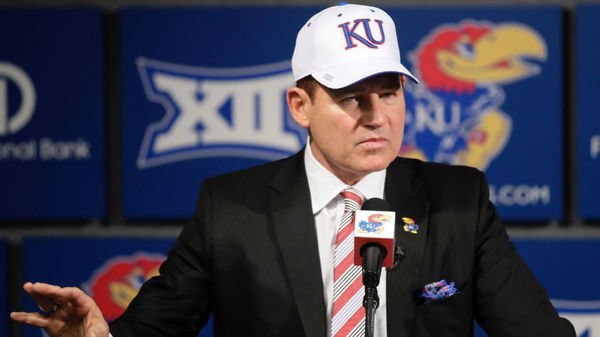

Back in 2018, LSU and former head coach Les Miles officially closed the book on their long-standing buyout saga. The university announced a final settlement, agreeing to pay Miles a one-time lump sum of $1.5 million; significantly less than the $6.5 million remaining on his original contract. However, the agreement, originally set to run through 2023, was restructured after weeks of behind-the-scenes negotiations.
Watch What’s Trending Now!
And LSU Athletic Director Joe Alleva made it clear, it was time for a fresh start. “The buyout lacked urgency for either side to walk away,” admitted Alleva. “We wanted to change that, and fortunately, Coach Miles and his camp agreed.” The agreement, finalized on November 15, 2018, brought a calm and intentional close to a defining chapter in Baton Rouge. But in hindsight, that $5 million resolution may prove to be a costly misstep for LSU.
ADVERTISEMENT
On July 16, WAFB reported a major legal development in Les Miles’ ongoing battle with LSU. The Louisiana First Circuit Court of Appeal shut down Attorney General Liz Murrill’s attempt to block the former coach’s lawsuit from moving forward. The court ruled that the state’s argument, claiming Miles had ‘no cause of action’, was no longer valid, thanks to a recent amendment in his legal filing. That move cleared the path for Miles to keep pushing forward with his case against the NCAA, LSU, and the CFB Hall of Fame.
At the center of the controversy lies LSU’s decision to vacate 37 of Les Miles’ victories from 2012 to 2015; a move that could jeopardize his Hall of Fame hopes. Yet, Miles isn’t staying silent. He’s pushing back, determined to defend the legacy he built in Baton Rouge.
ADVERTISEMENT

ADVERTISEMENT
Les Miles says the decision by LSU to take away 37 of his wins (the victories that were earned while Alexander played under seemingly improper benefits) is not just excessive, but it’s also wrong. He claims the move unfairly lowered his career win percentage to below. 600, which essentially excludes him when it comes to CFB Hall of Fame discussion. Not only that, Miles says that LSU never even gave him the opportunity to respond before giving the penalties. So, he believes the school threw him under the bus to protect itself from greater NCAA consequences.
ADVERTISEMENT
Moreover, Les Miles’ attorneys argue that the NCAA never named the former HC directly, yet LSU still took liberty with his name in the process. Miles’ case continues to be in the news as the Louisiana First Circuit Court dismissed Liz Murrill’s motion to stay the case. And the next hearing will take place at the 19th Judicial District, where Miles seeks to restore his legacy and reputation after challenging the allegations at LSU.
Interestingly, the recent tweak to the CFB Hall of Fame eligibility rules could be the game-changer for Les Miles. The National Football Foundation has lowered the minimum career winning percentage for coaches from .600 to .595—just enough to bring Miles (.597) back into the conversation. Now, for this coaching legend, that slight shift could mean a shot at football immortality.
ADVERTISEMENT
Les Miles’ era in Baton Rouge
Les Miles stepped into the LSU spotlight in 2005, taking the reins from Nick Saban (who coached LSU from 2000 to 2004) and quickly putting his stamp on the program. In his debut season, he guided the Tigers to an impressive 11–2 record, highlighted by a thrilling comeback win over ASU. Just two years later, Miles reached the pinnacle of college football, leading LSU to a BCS National Championship with a 38–24 victory over OSU. And for his wild play-calling and animated sideline presence, he earned the nickname “The Mad Hatter.”
Then over the next 10 years, Les Miles turned LSU into a model of consistency in CFB’s toughest conference. Between 2005 and 2015, no SEC team won more games than the Tigers, who averaged 10 victories per season under his leadership. On top of that, Miles guided LSU to several top-10 finishes and orchestrated a perfect regular season in 2011, falling only to Bama in the BCS National Title. His impact extended beyond wins—he was a force in player development. During his tenure, LSU produced 22 first-team All-Americans and 69 NFL Draft selections, topping the nation in draft picks.
ADVERTISEMENT
Off the field, Les Miles championed academics, with 242 players earning degrees and strong graduation rates late in his tenure. Though a downturn in 2015 and a 2–2 start in 2016 led to his exit. And he left with 114 wins—the second-most in LSU history. So, his time in Baton Rouge blended success and personality, cementing his legacy in CFB lore.
ADVERTISEMENT
ADVERTISEMENT
ADVERTISEMENT
.png)
.png)
.png)



